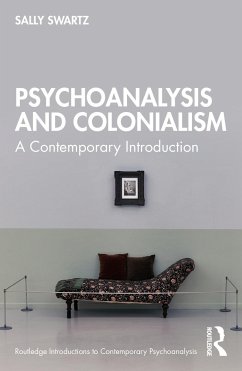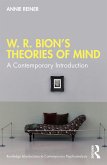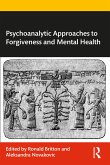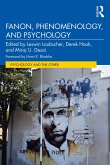Within this important and insightful book, Sally Swartz introduces readers to early entanglements of psychoanalytic theory with colonialism and how it has led to significant and long-lasting implications for psychoanalysis.
Psychoanalysis and Colonialism is unique in drawing together a wide array of sources and a span of history from the beginnings of psychoanalysis to current theory and practice. The book explores ways in which Freudian theory incorporated the idea of the primitive into the centre of mapping the untamed territories of the unconscious, via notions of taming instinctual excess, civilizing the primitive and conquering and bringing order to wildness. The text describes the influences of colonialism on the thinking of Freud and Jung and goes on to describe anti-colonial voices, including Césaire and Mannoni, Memmi and Fanon, and their contribution to psychoanalytic theory. It concludes with thoughts on the challenges of decolonizing psychoanalysis.
This book is an accessible account of the links between colonialism and psychoanalysis and is suitable for general readers with an interest in the topic, as well as all psychoanalytic practitioners grappling with the ways in which issues of race, class, gender and sexuality affect their ways of working and writing.
Psychoanalysis and Colonialism is unique in drawing together a wide array of sources and a span of history from the beginnings of psychoanalysis to current theory and practice. The book explores ways in which Freudian theory incorporated the idea of the primitive into the centre of mapping the untamed territories of the unconscious, via notions of taming instinctual excess, civilizing the primitive and conquering and bringing order to wildness. The text describes the influences of colonialism on the thinking of Freud and Jung and goes on to describe anti-colonial voices, including Césaire and Mannoni, Memmi and Fanon, and their contribution to psychoanalytic theory. It concludes with thoughts on the challenges of decolonizing psychoanalysis.
This book is an accessible account of the links between colonialism and psychoanalysis and is suitable for general readers with an interest in the topic, as well as all psychoanalytic practitioners grappling with the ways in which issues of race, class, gender and sexuality affect their ways of working and writing.
'Within Psychoanalysis and Colonialism Sally Swartz offers her colleagues and all interested a perspective unique to one "seeing" our world from outside of a European or North American cultural context. As a psychoanalytic psychotherapist trained and practicing in Africa, though steeped in the ideas and practices coming from those colonizing cultures, Swartz offers a carefully crafted history of how the ideas and practices of our craft have been shaped and reinforce basic assumptions underlying the political ideas and actions constituting the history within which psychoanalysis was born and matured. This look back at our past and present is an invaluable tool for any considerations concerning the unfolding value that psychoanalysis might have for the new social/economic/political configurations in which we find ourselves embedded and carried along.'
Dr Steven Knoblauch, Ph.D., Clinical Adjunct Associate Professor, Clinical Supervisor, New York University Postdoctoral Program in Psychotherapy and Psychoanalysis, author of Bodies and Social Rhythms (2021)
'In Psychoanalysis and Colonialism: A Contemporary Introduction, Sally Swartz offers a timely, sensitive and accessible account of psychoanalytic entanglements with colonialism as well as the touchstones that may guide a decolonial psychoanalysis.'
Dr Wahbie Long, Director of the Child Guidance Clinic, University of Cape Town, author of Nation on the Couch: Inside South Africa's Mind (2021)
Dr Steven Knoblauch, Ph.D., Clinical Adjunct Associate Professor, Clinical Supervisor, New York University Postdoctoral Program in Psychotherapy and Psychoanalysis, author of Bodies and Social Rhythms (2021)
'In Psychoanalysis and Colonialism: A Contemporary Introduction, Sally Swartz offers a timely, sensitive and accessible account of psychoanalytic entanglements with colonialism as well as the touchstones that may guide a decolonial psychoanalysis.'
Dr Wahbie Long, Director of the Child Guidance Clinic, University of Cape Town, author of Nation on the Couch: Inside South Africa's Mind (2021)









